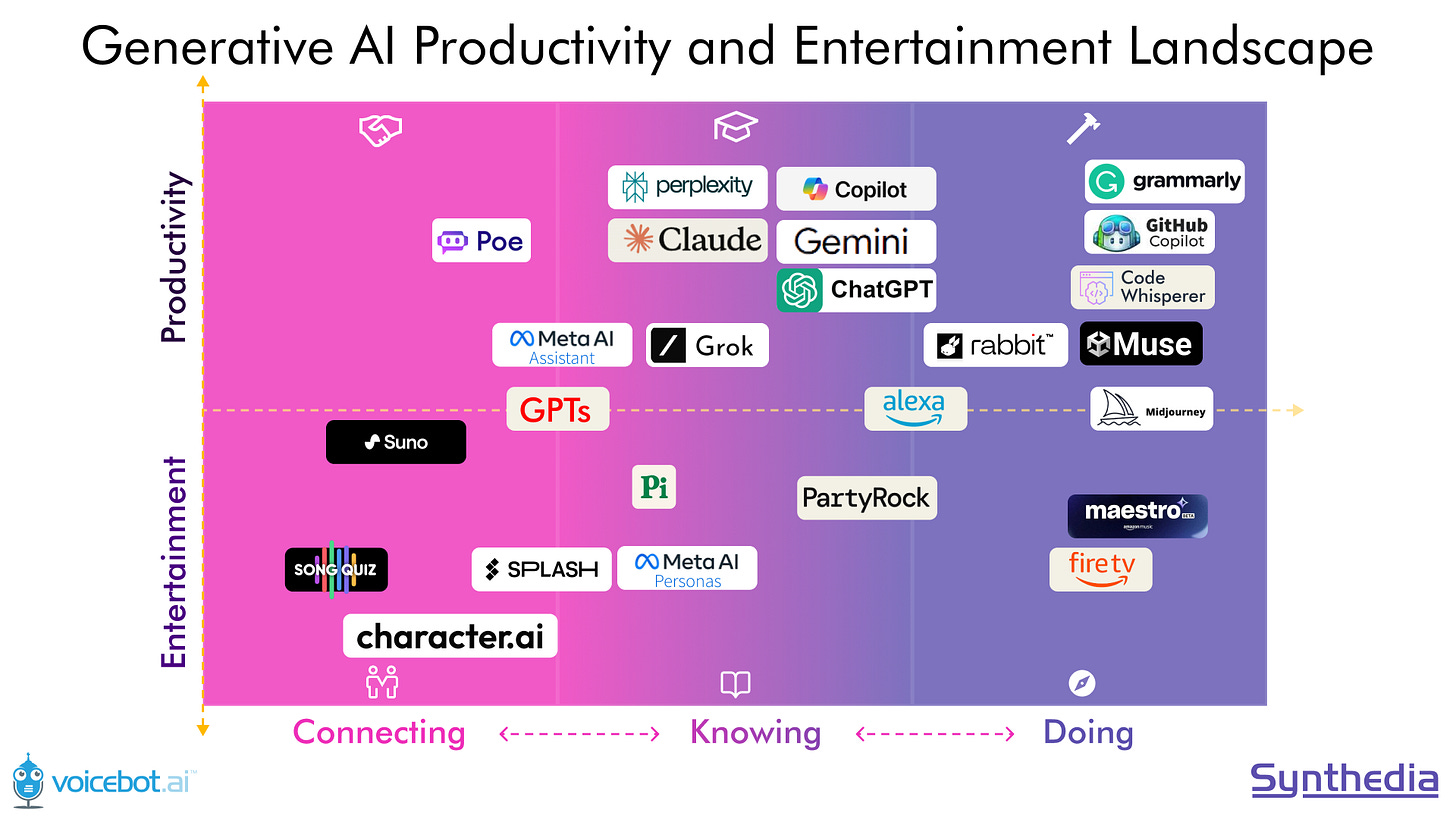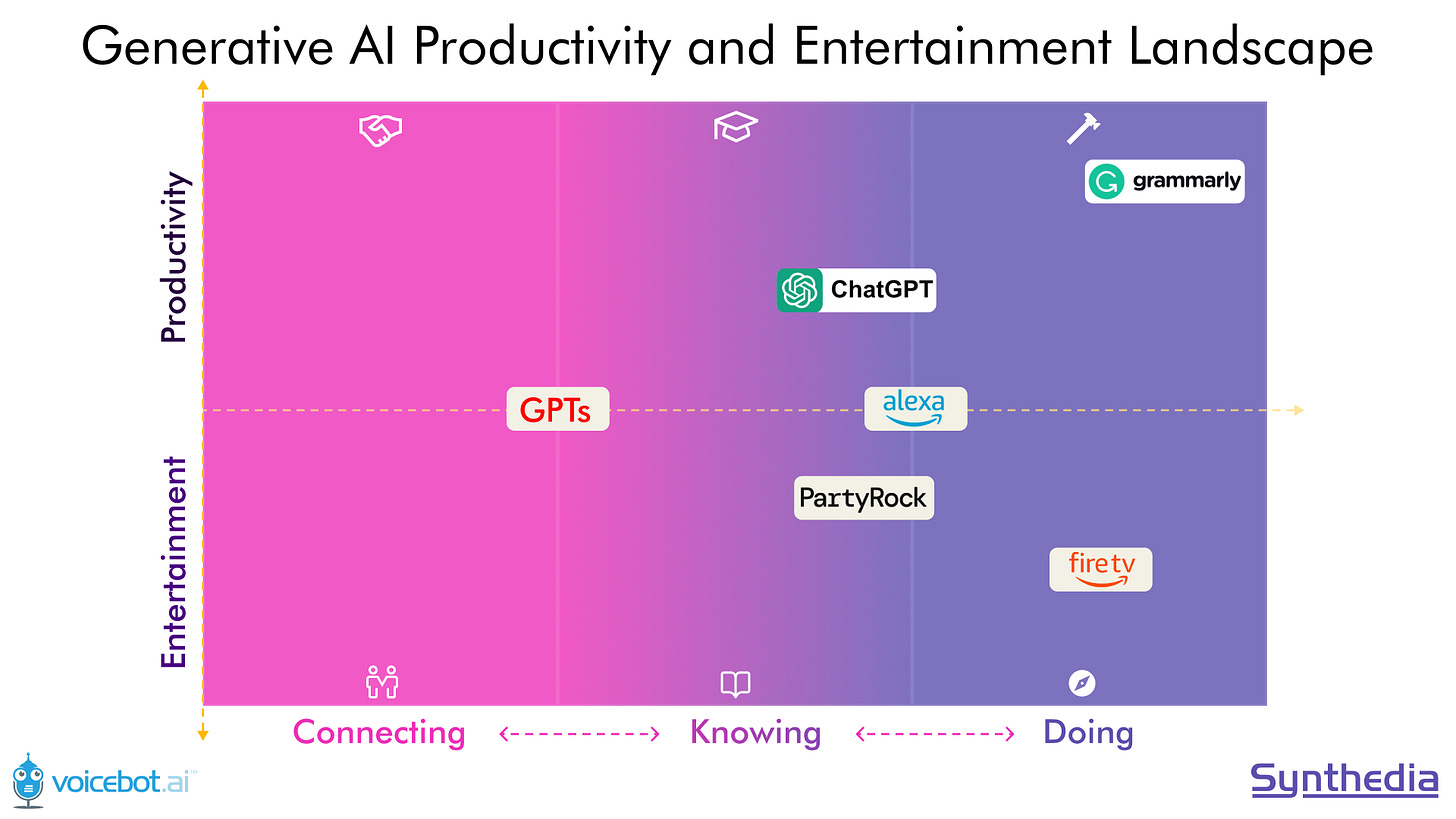Generative AI in Entertainment Framework and Landscape
Understanding LLM-enabled assistants and experiences
It is well understood that generative AI in general and large language models (LLM) in particular are leading to rapid industry change. One industry that has resisted the change but is bound to be significantly transformed is entertainment. Whether lean-back experiences such as music, movies, and television or lean-forward experiences like games, LLMs, and related technologies will enable a shift in the way we think about and consume leisure activities.
LLM Apps Invade Entertainment
This past week, I was a guest in a webinar hosted by Amazon Alexa for more than 1200 developers regarding the intersection of LLMs and entertainment. You can watch a video replay where I talk about this topic in more detail with Amazon’s Emerson Sklar. I also wanted to break this down here for anyone who would like to consider a framework for thinking about generative AI in the entertainment context.
First, I should point out that Synthedia’s Generative AI Entertainment Framework includes a spectrum that also represents productivity. This is included for two reasons:
Most of the experience users have in the market so far is with productivity-oriented generative AI solutions, so presenting entertainment in relation to productivity offers an anchor point for comparison.
Many of the generative AI models and applications are versatile enough to be used for productivity or entertainment. The landscape placement reflects Synthedia’s observation of how most users most often employ the applications.
It is important to recognize that there is a productivity-entertainment spectrum for generative AI and that some of these solutions are likely to migrate towards one or the other over time. ChatGPT is used mostly for productivity. GPTs, which are features available to paying subscribers are a genuine mix of fun and work.
By contrast, Grammarly employs generative AI, which is almost entirely used for productivity-related tasks. FireTV’s generative AI capabilities are squarely in the entertainment category and Alexa relies on a balance of both. You might ask it for a recipe and cooking instructions or to start your favorite playlist.
LLM Apps Beyond Knowledge
Another spectrum for comparing generative AI applications is their level of focus on “connecting,” “knowing,” and “doing.” Long-time readers of Synthedia and Voicebot will be familiar with the “knowing” and “doing” assistant framework. This framework differentiates between the features that drove users to employ voice assistants. Alexa, Siri, and Google Assistant are classic “doing” assistants.
Users most often request that “doing” assistants execute simple commands, such as controlling appliances, playing music, setting an alarm, initiating a phone call, or fetching information like the weather. However, their knowledge depth and versatility are limited.
ChatGPT, Perplexity, Microsoft Copilot, Gemini Advanced, and the new crop of generative AI-enabled assistants are primarily “knowing” assistants. They are excellent at fetching, summarizing, transforming, and generating knowledge.




